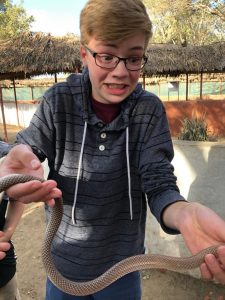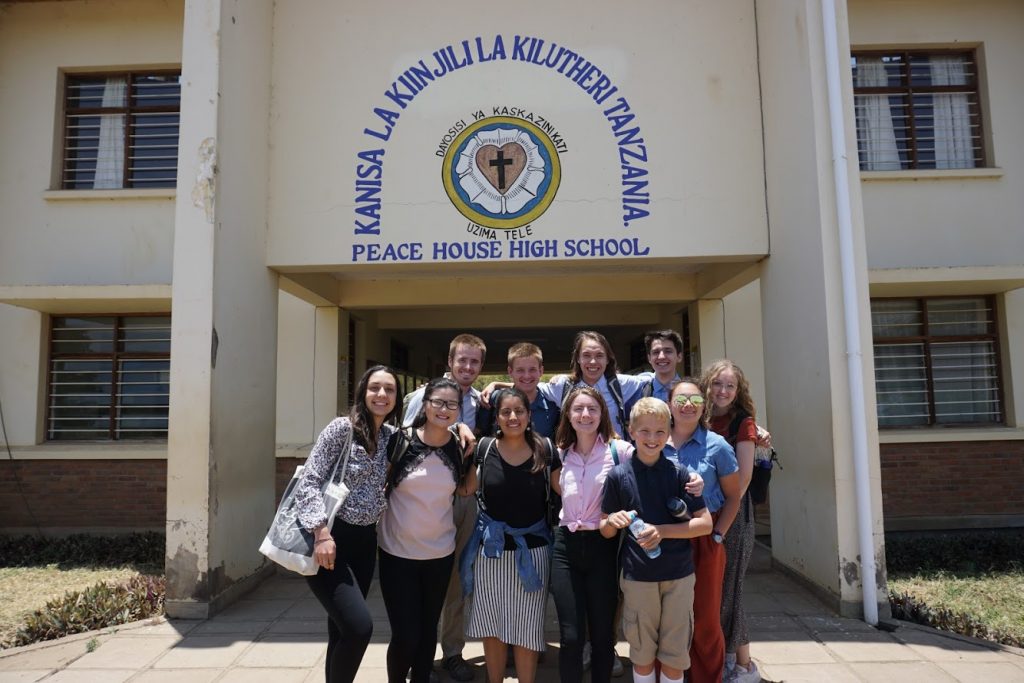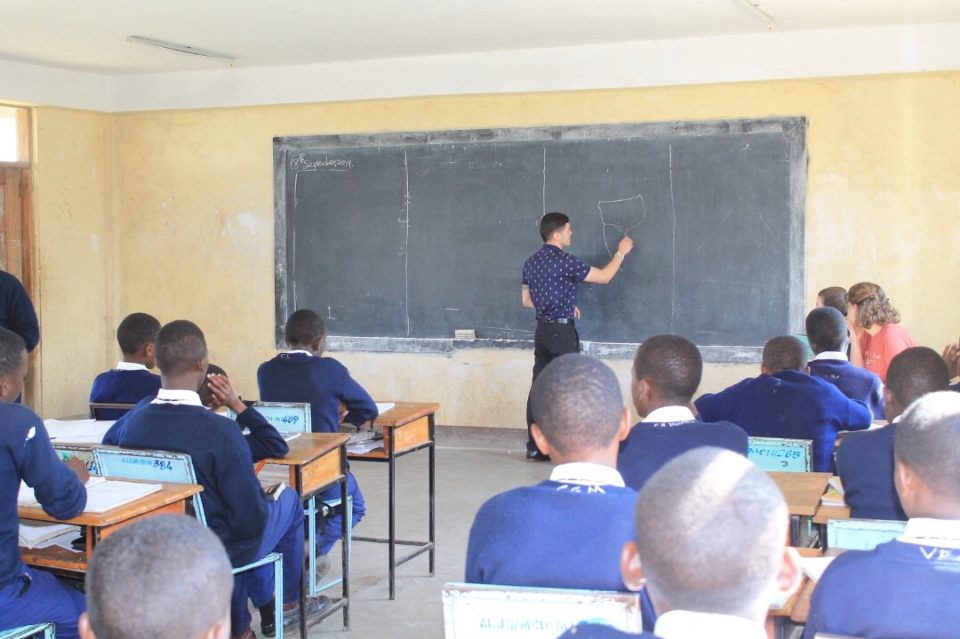Back-2-School
Swahili word bank:
- Karibu = Welcome
- Shagalabagala = Bumpy / Chaotic
- Pole = Expression of Sympathy
- Baadaye = Later
Karibu! After the first few weeks of the global program, our lives abroad have now shifted to a more steady pace in Arusha, Tanzania. Sadly, our transition to Tanzania has also come with some shagalabagala (bumps or chaos) as Annika Peterson fell onto a shagalabagala (bump) on Monday while jumping for a frisbee throw from her dear friend, Johnny Goodson. After considerable hours inside of the healthcare clinic, she does not have any breaks but a badly sprained right ankle. The group has all taken note of her continued positive attitude and superb crutch walking skills along these extremely uneven Tanzanian gravel roads. Pole Annika!

Apart from the injury at the kickoff of week three in Tanzania, the group was able to indulge in more eye-opening experiences under the perfect sunshine. This week the group played soccer with the neighborhood kids, held snakes, visited a tribal museum, and much more. For anyone getting the picture of this group having “not enough work and too much play” do not be concerned! We had our first true week of school and went to “work” with nearly 25 hours of lecture, not including the day-long school visit on Thursday. Our class time throughout the entire week was concentrated on Tanzania’s healthcare and education systems. We mainly focused on the country’s healthcare goals, financing strategies and ways they have battled communicable diseases, specifically malaria the past 100 years. In addition, we learned more about the history of Tanzania and its diverse culture with over 120 tribes located in the country. We also attempted to ask a simple but complex question, “what is culture?” There are countless ways to answer this question but we learned that culture is dynamic, shared with others and we either create culture or culture creates us.
On the topic of culture, our group was able to learn more about the culture of a specific tribe, the Maasai. We visited the Maasai Cultural Museum to get a glimpse of this tribe’s semi-nomadic, polygamous and pastoral lifestyle. Furthermore, we were visited in our class by two Maasai members to talk about the tribe’s beliefs, practices, and societal roles. I would strongly recommend reading more about this rather fearless tribe which is highly prevalent in the Arusha area!
We also visited our first schools which were both English speaking boarding schools in rural Arusha. Half the group attended Ailanga Secondary School while the other half attended Peace House Secondary School. The schools appeared to efficiently and effectively utilize their resources to prepare all of their students for future careers. Our group was able to talk with several students and staff to get a better grasp of Tanzania’s education structure.

At the Ailanga Secondary School, one of our “globies” was able to take his education skills which were acquired at St. Olaf and put them on display in front of the Tanzanian students. With no prior notice, Johny Salinas, found himself in front of the class teaching students about the history, culture, and language of Mexico. The students were highly engaged during Johny’s lesson and came away with a couple of new Spanish words to greet their friends. It was clear after this lesson that Johny will be a great social studies teacher wherever he lands in the future.

Time has flown in our time here in northern Tanzania but we will continue to cherish the upcoming excursions, the compassionate people as well as the beautiful weather. Although we may forget our Swahili, one thing that will not forget is the genuine compassion that all Tanzanians have shown to our group. Even though our limited Swahili often embarrasses ourselves the efforts always put a smile on people’s faces. Keep in touch for future blog posts around the globe from all the globies! Baadaye!
— Ryan Torbenson ‘20
You must be logged in to post a comment.